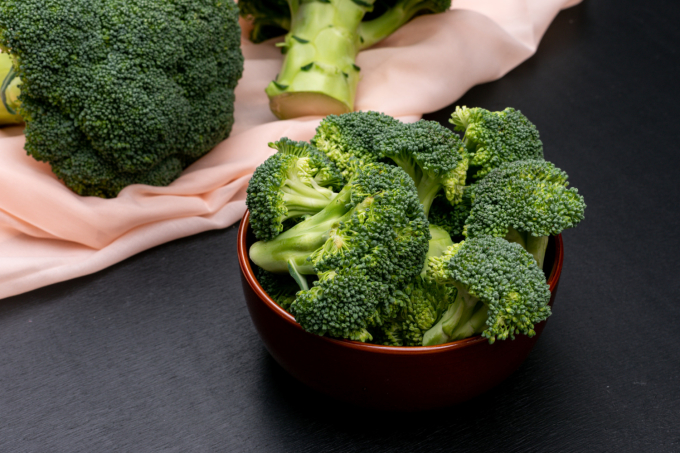Cauliflower, kale, radishes, and carrots are rich in soluble fiber and nutrients that help control bad cholesterol and protect heart health.
Lack of exercise, obesity, heavy drinking, smoking, poor diet, high blood pressure, high cholesterol all contribute to poor cardiovascular health. Cholesterol is the culprit behind heart attacks and coronary artery disease. The following vegetables can help reduce bad cholesterol and the risk of cardiovascular disease.
Green and white broccoli
Broccoli is high in soluble fiber and contains sulforaphane, which helps reduce the body's triglyceride levels. In the digestive tract, fiber binds to bile acids, making it easier to excrete cholesterol. In addition, broccoli is also low in calories, so eating a lot can still help maintain a healthy weight.
Cauliflower is rich in plant sterols, a type of lipid that prevents the intestines from absorbing cholesterol. At the same time, cauliflower contains sulforaphane, which also helps reduce fat accumulation in the arteries.

Broccoli helps reduce bad cholesterol in the body. Photo: Freepik
Kale
Kale is rich in potassium, fiber, folate, and calcium. These nutrients help lower LDL levels (known as bad cholesterol, which increases the risk of heart disease). Kale also helps lower blood pressure and is rich in lutein, which helps reduce the accumulation of bad cholesterol in the body.
Radish
Radishes contain anthocyanins, which also help lower LDL levels, reducing inflammation in the veins and arteries. They are also rich in minerals like calcium and potassium, antioxidants that help reduce high blood pressure and the risk of developing heart disease. The nitrates in radishes (a type of salt) help improve blood flow.
Carrot
Carrots help keep your heart healthy. This is because beta-carotene, a component of vitamin A, is metabolized by the body and helps reduce bad cholesterol levels in the blood. Additionally, consuming carrots alters bile acid secretion and antioxidant status, which indirectly has a beneficial effect on the cardiovascular system.
A 2022 review found that carrots may protect against high blood pressure. Another 2018 review also concluded that yellow-red-orange vegetables (like carrots) are protective against heart disease.
How much should I eat daily?
Every day, people should eat at least 25g of fiber, without taking additional supplements. Vegetables can be processed into juice, soup, stir-fried, steamed, fermented and still retain their nutritional value.
With radishes, eating too much can cause decreased thyroid hormone production in people with iodine deficiency, so it should be eaten in moderation. A cup of cooked kale provides 3.6% of an adult's daily potassium needs, and can be used in salads and juices.
Chile (According to Healthshots, WebMD, Medical News Today )
Source link


![[Photo] Binh Trieu 1 Bridge has been completed, raised by 1.1m, and will open to traffic at the end of November.](https://vphoto.vietnam.vn/thumb/1200x675/vietnam/resource/IMAGE/2025/10/2/a6549e2a3b5848a1ba76a1ded6141fae)














![[Video] Ministry of Health issues document to rectify medical examination and treatment work](https://vphoto.vietnam.vn/thumb/402x226/vietnam/resource/IMAGE/2025/10/2/54913f30a9934e18bcbb246c2c85f11d)



















































































Comment (0)